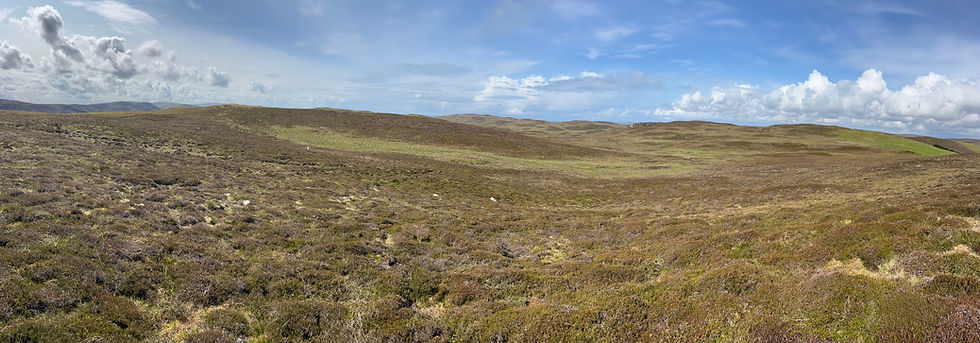A Shetland Christmas
- Archaeology Shetland
- Jan 8, 2022
- 2 min read
Updated: Dec 9, 2023

Thammasmass e'en was five nights before Yule-day, and this evening was supposed to be peculiarly holy. No work of any kind was done after day-set, and — unlike all other evenings of Yule-tide — no amusements were allowed. The smallest deviation from what was considered orthodox on this occasion was sure to bring bad luck.
The very babe unborn
Cries oh dul ! dul !
For the breaking o' Thammasmass nicht.
Five nichts afore Yule.
Byana's Sunday. — The Sunday preceding Yule-day was called Byana's Sunday. That evening half a cow's head was boiled and eaten for supper. The fat skimmed off the water was made, with burstia into brose. The skull was carefully cleaned, a candle stuck in the eye-socket, and then it was set aside for use later in the season. Yule e'en was the great time of preparation for the crowning festival of all. Though the family might be very poor indeed, they always contrived to have a piece of "fiesh-meat" to cook on Yule e'en.
After the ordinary bread was baked, a round oatcake was kneaded for each child, differing in size as the young ones differed in age. These cakes were pinched into points round the outer edge, and a hole was made in the centre, and they were named emphatically the Yule-cakes. Each member of the family washed their whole person, and donned a clean (if possible, new) garment, in which they slept that night. When the hands or feet were put into the water "three living coals were dropped into the water, else the Trows took the power o' the feet or hands.'
The house was carefully tidied, "no unkirsn things left in sight," and all soiled water thrown away. All locks were opened, a lamp was left burning all night, and an iron blade was laid on a table near the door.
Before daylight on Yule morning the gudeman of house got up and lit the candle, which had been stuck in the eye-socket of the cow's skull. Then he proceeded with this unique candlestick to the byre and fed the beasts, giving to all a little better food than usual, which they were expected to eat by the light of that candle. The next thing the gudeman did was "to go round to the folk of the house with drams," and even the bairns were bound to "taste, if nae mair," while to he said —
Yule gude and yule gear
Follow de trew da year.
Breakfast was eaten by artificial light, and on this occasion many a bit of hoarded candle was produced by the youngsters, who had secreted those morsels for months that they might have a fine lighting up on Yule morning.
No work of any kind was done upon Yule-day, for the old rhyme said —
Nedder bake nor brew,
Shape nor shew,
Upon gude Yule,
Else muckle dul
Will be dy share
Dis year and mair.
A girl who, "wishful to show contempt for auld ways (and moreover needing sair to finish a pair o’ socks that the laird was to buy frae her), took ta her wires [knitting- needles] upon Yule-day. A’ folk telled her to be wise, and some said she was see! And, puir lass! she never saw another Yule."
Taken from Examples of printed folk-lore concerning the Orkney & Shetland islands by George Fraser Black.





Comments